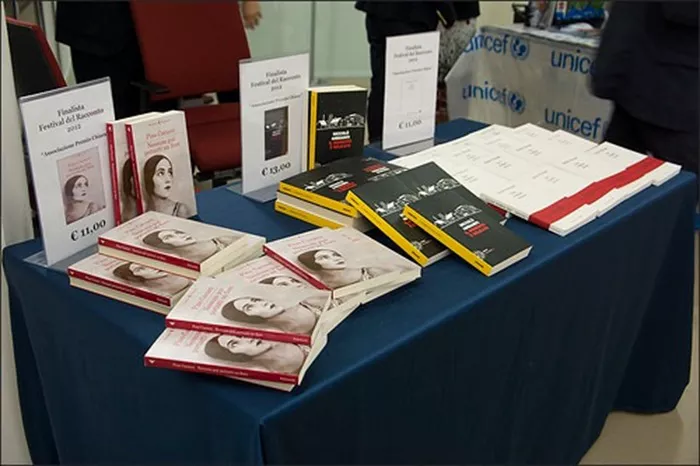In her English-language debut, Egyptian poet Fatma Qandil brings readers a profound exploration of love, betrayal, and the complexities of family life in Empty Cages: A Novel. Winner of the 2022 Naguib Mahfouz Medal for Literature, Qandil’s first novel is a semi-autobiographical narrative that invites readers into the intimate world of a middle-class Egyptian family during the 1960s, gradually unraveling their most explosive secrets.
A Journey Through Trauma and Growth
The novel follows Fatima, the younger sister in the family, as she embarks on a cathartic journey to document her family’s history. Through the lens of her personal experiences, she grapples with both joyous and traumatic memories that have shaped her identity. While the challenges she faces—such as a drunken father, selfish older brothers, and caring for an ill parent—are not uncommon for struggling families, the weight of these burdens is felt profoundly through Fatima’s eyes.
Qandil’s lyrical prose creates a stark contrast between the family’s outwardly ordinary life and the complex emotional dynamics within. As Fatima reflects on her life, the novel also serves as a deep psychological exploration of human suffering, resilience, and survival in the face of adversity, including violence, poverty, and betrayal.
A Poetic Approach to a Dysfunctional Family
Fatima’s voice, shaped by her poetic background, is integral to the narrative’s emotional resonance. Her candid and often cynical recounting of family dysfunction reverberates with a lyrical quality that highlights both despair and strength. The novel opens with Fatima, now an adult, recalling a childhood memory—one of enjoying Cadbury’s Milk Tray chocolates with her family cat—evoking a sense of nostalgia that contrasts with the turmoil that follows.
Throughout the novel, Qandil weaves a tapestry of vignettes that explore the fraught relationships between Fatima, her family, and the broader community. Her memories flow seamlessly, with the disjointed moments of her past gradually merging into a cohesive reflection on her life. The narrative reveals her family’s gradual unraveling—from her father’s abandonment of his dreams and descent into alcoholism, to her brothers’ failures to provide the support she so desperately needed.
A Woman’s Struggle with Family and Self
The novel’s portrayal of family life is both intimate and expansive. Fatima’s father, once a successful teacher, begins to lose everything as he succumbs to his addiction. Meanwhile, her two brothers—Ramzi and Ragi—add to her sense of unrest. One brother disappears for decades, leaving a lasting rift in the family, while the other assumes the role of the reluctant family head, offering advice but little else. Fatima’s mother, a steady and loving presence, becomes Fatima’s sole responsibility as she succumbs to cancer, cementing the bond between them in the final years of her life.
As Fatima navigates destructive marriages, debt, and sexual exploitation while striving to establish herself as a poet, she exposes the difficult truths of her existence. Her writing becomes a means of liberation, allowing her to free herself from the emotional cages of her past. Through her uncompromising honesty, she unearths the raw and unvarnished details of her life, shedding light on both the wounds and healing that accompany the journey toward self-understanding.
A Narrative of Reflection and Reconciliation
Empty Cages is not merely a recounting of hardship; it is a meditation on the complex interplay of love, loyalty, and betrayal. Fatima’s reflections on the people who have shaped her—whether they remained a constant presence in her life or faded away—illuminate the ways in which memories both wound and heal. Through her poignant observations, Qandil paints a vivid picture of the emotional landscape that underpins familial relationships.
Fatima’s candid portrayal of her brothers’ failures, the distance created by changing social and financial circumstances, and the fragile illusions of family unity presents a stark contrast to the expectations of love and support. A key scene in the novel reflects this isolation: during childhood, the family seldom gathered around the table for meals, each member existing in their own world until a rare outburst would momentarily unite them.
A Bold and Unflinching Narrative
What sets Qandil’s novel apart is its unflinching honesty. Her raw, sometimes uncomfortable language forces readers to confront the reality of the human experience, unfiltered by idealism. In Empty Cages, the reader is not shielded from the ugliness of life, nor does the narrative offer a false sense of hope. Instead, it confronts the reader with the cyclical nature of pain, love, and loss, and the resilience required to endure it all.
Ultimately, Empty Cages serves as both a personal liberation for Fatima and a confronting exploration for the reader. In exposing the brokenness of her family and the complexity of her own emotions, Qandil crafts a work that is as thought-provoking as it is emotionally potent. This is a novel that challenges the conventions of family storytelling, offering no easy answers, only an honest portrayal of the many cages we build around ourselves—and the courage required to break free from them.

